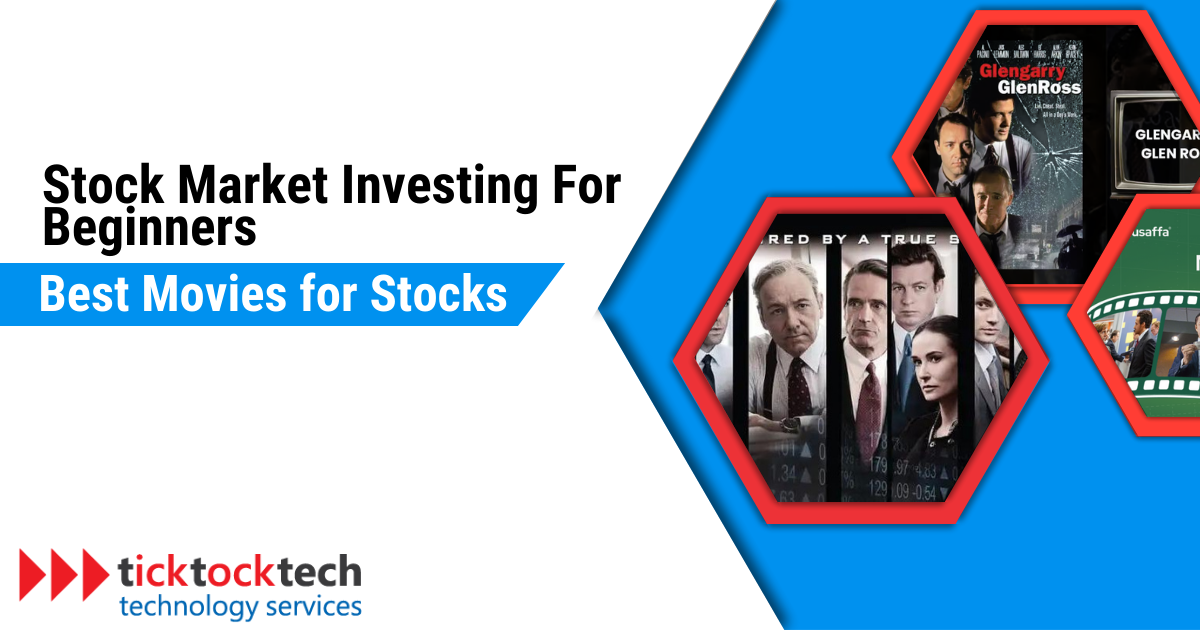For beginners in stock market investments, you might find it overwhelming to understand the complexities of the financial world. Fortunately, there are many resources available to help you grasp the fundamentals of stock market investing, and one unique but effective method is watching movies.
What is the Stock Market?
Before diving into the movies, let’s first understand what the stock market is.
The stock market refers to the collection of exchanges and markets where stocks, bonds, and other securities are bought and sold. It serves as a marketplace for companies to raise capital by offering stock shares and corporate bonds, and allows investors to participate in the financial achievements of the companies.

When investors buy shares from a company, they acquire partial ownership of the company. When a company decides to go public, it offers shares through an initial public offering (IPO). Once the shares become available for trading, investors can buy and sell them on stock exchanges.
Furthermore, the stock market is influenced by factors that impact the supply and demand for securities. Economic indicators, such as GDP growth, inflation rates, and employment figures, impact investor sentiment and market performance. Geopolitical events, such as trade disputes, political instability, and natural disasters, also affect the stock market by creating uncertainty and volatility.
Additionally, investor sentiment plays a crucial role in stock market movements. Emotions, market trends, and market psychology drive buying and selling decisions, leading to price fluctuations. Understanding these dynamics is essential to make informed decisions, manage risks, and potentially generate returns.
The 5 Best Stock Market Investment Movies to Watch
Now, onto the exciting part. Here are the top 5 movies that you should watch to gain insights into the highs and lows of the stock market:
The Big Short
The Big Short is a 2015 film directed by Adam McKay, based on the book of the same name by Michael Lewis. It tells the story of the financial crisis and housing market collapse in the United States before the Great Recession. The stock market investment movie follows a group of financial professionals who predicted the crisis and made significant profits from it.
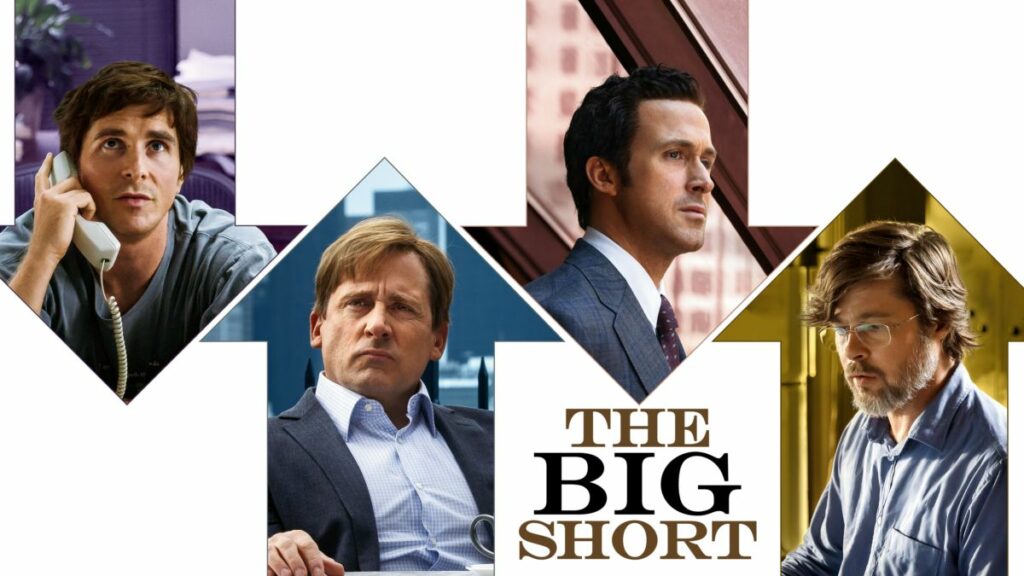
The main character, Michael Burry, is portrayed as a socially awkward but highly intelligent investor. He uses a strategy based on value investing and a concept called “margin of safety” to identify overpriced stocks and bet against them. He accurately predicted both the dot-com bubble and the housing market crash.
The movie also explains complex financial concepts in a simple way, using examples from everyday life. It combines humor with the serious subject matter, making it both informative and entertaining. The film also raises important questions about the confidence we place in financial institutions and our understanding of investments.
The Wolf of Wall Street
The Wolf of Wall Street is a movie based on the true story of Jordan Belfort, a businessman who built a brokerage company and engaged in fraudulent and unethical activities. Leonardo DiCaprio plays the role of Belfort in the film. The movie focuses on the darkly comedic aspects of Belfort’s life and the corruption within his company, Stratton Oakmont.
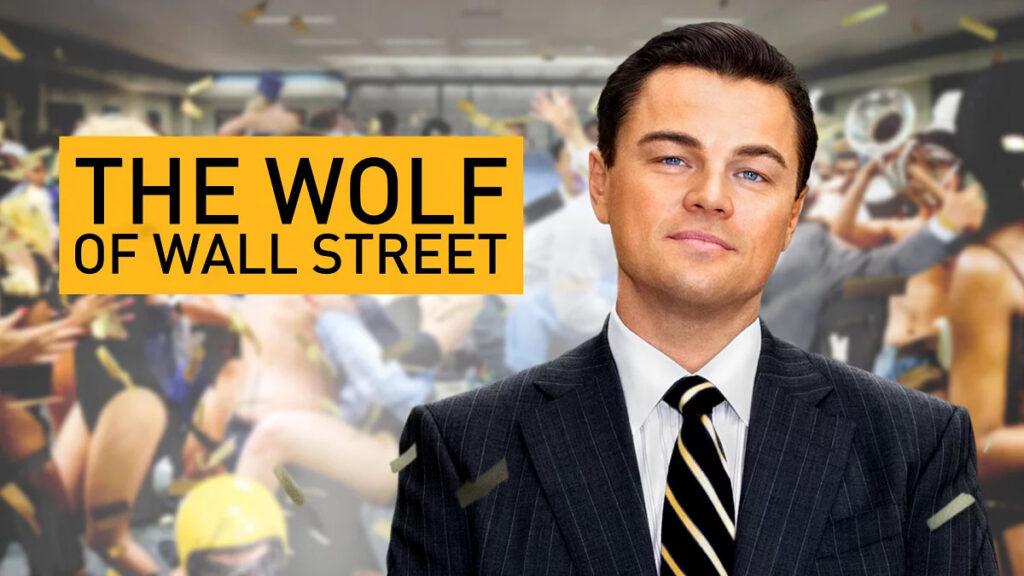
The story highlights Belfort’s involvement in different illegal activities, including financial fraud and extortion. It also portrays how his friends, family, and business partners were part of the corruption. The FBI investigated the crimes and uncovered a widespread network of corruption. Belfort was eventually sentenced to prison for 22 months.
The film also sheds light on crimes and the financial consequences associated with them. It emphasizes the brands and individuals involved in the story. The audience appreciated Leonardo DiCaprio’s portrayal of Belfort, as it accurately depicted the real-life figure.
The Wolf of Wall Street is a highly recommended film that offers a perspective on the world of stockbrokers in New York City. The FBI’s investigation connects the concerns raised to the corruption within the system. The movie was a box office success, generating significant revenue both domestically and internationally.
Wall Street
Wall Street is a movie directed by Oliver Stone and released in 1987. The film follows Bud Fox, a young stockbroker who aspires to work with Gordon Gekko, a powerful figure on Wall Street. Bud impresses Gekko by sharing insider information about a company called Bluestar Airlines. Gekko becomes Bud’s client, and they make profitable stock deals together.
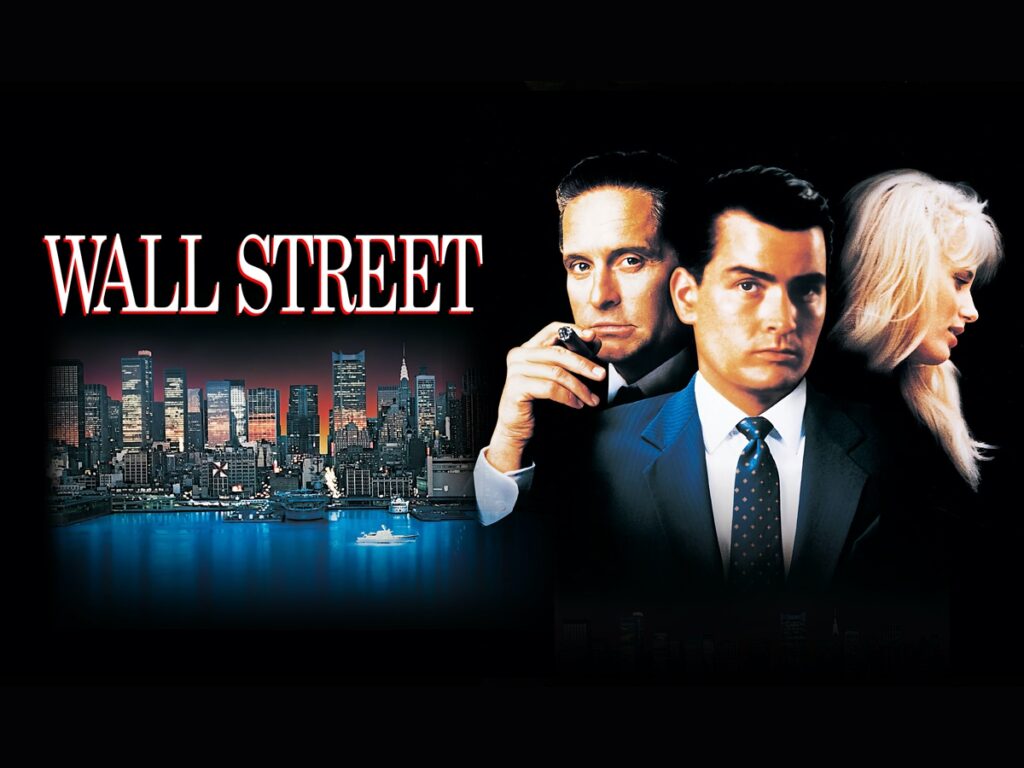
As Bud becomes more involved with Gekko, he becomes entangled in shady business practices. Unbeknownst to Bud, he is being investigated by the Securities and Exchange Commission (SEC). Bud proposes a plan to Gekko to take over Bluestar Airlines, but he realizes Gekko’s intention is to profit by dismantling the company. Feeling guilty about the impact on others, Bud manipulates the stock and convinces another investor to buy a majority stake at a discount.
Eventually, Gekko discovers Bud’s scheme and reports him to the SEC for illegal activities. Bud decides to cooperate with the SEC to bring down Gekko in exchange for a lighter sentence.
The movie highlights the consequences of greed and unethical behavior in the world of high finance. It showcases the power dynamics and moral dilemmas faced by individuals on Wall Street.
Rogue Trader
Rogue Trader is a 1999 British biographical drama film that depicts the true story of Nick Leeson, a young and ambitious financial trader who singlehandedly bankrupted Barings Bank, one of Britain’s oldest and most significant financial institutions. The movie follows Leeson’s ascent as one of Barings’ key traders, ultimately leading to the bank’s collapse.
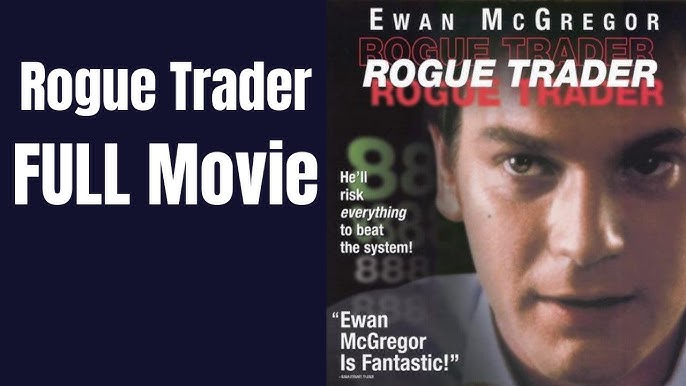
Leeson begins his career at Barings Bank in Indonesia and later becomes a derivatives trader at the bank’s Singapore trading seat. His responsibility is to trade futures contracts based on the Nikkei 225, a stock index on the Japan Stock Exchange, on behalf of Barings’ clients. However, a trader’s error results in a significant loss, prompting Leeson to resort to trading futures under an unauthorized account numbered 88888 to cover the losses. Unfortunately, this decision leads to substantial losses, and despite his efforts to recover, the losses continue to mount.
The bank’s management remains unaware of the escalating losses in the unauthorized account, and the inadequate compliance system and improper audits at Barings Bank contribute to the losses reaching a staggering £800 million, nearly equal to the bank’s available capital. As the market turns against him, Leeson’s actions bring him closer to the endgame, ultimately leading to his arrest and extradition to Singapore. There, he is found guilty of his crimes and receives a six-year prison sentence.
Margin Call
Margin Call is a 2011 film directed by J. C. Chandor that takes place during the early stages of the 2008 economic collapse. The story revolves around a Wall Street investment bank grappling with the consequences of its past actions. Peter Sullivan, a young investment banker with a background in rocket science, discovers that the firm is in serious trouble.
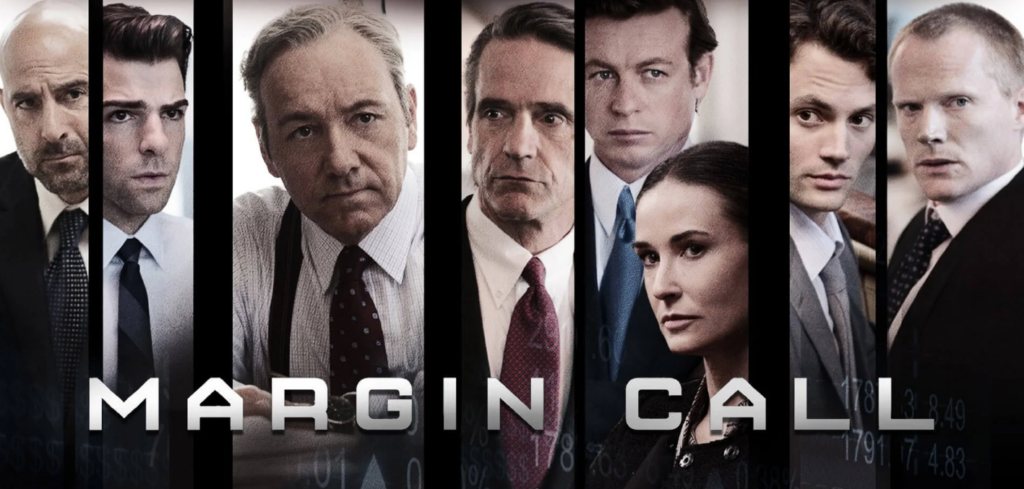
As the bank lays off employees, Peter takes over the work of Eric Dale, the Head of Risk Management, who has unexpectedly left. Using information from a USB drive given to him by Eric, Peter realizes that the bank’s trading activities have put its stock value at risk of falling below the company’s worth. As the bank’s top executives, including CEO John Tuld, gather for an all-night meeting, they try to find a solution to save the company before the impending financial disaster.
The film focuses on the events leading up to the crisis rather than the actual collision itself. Despite the complex financial terminology and the puzzle-like nature of the plot, the movie manages to captivate viewers and keep them engaged. It also offers an overview of investment banking. While some questions may remain unanswered at the end, this reflects the realities of the real-life events.

